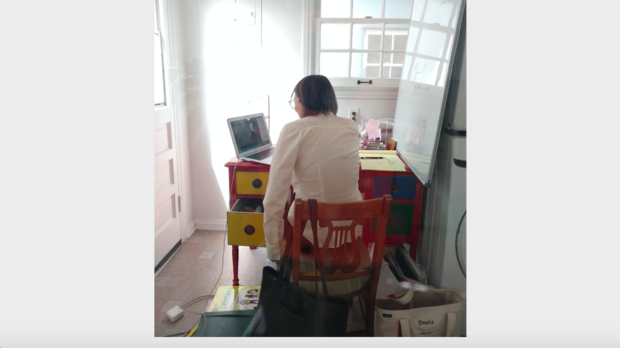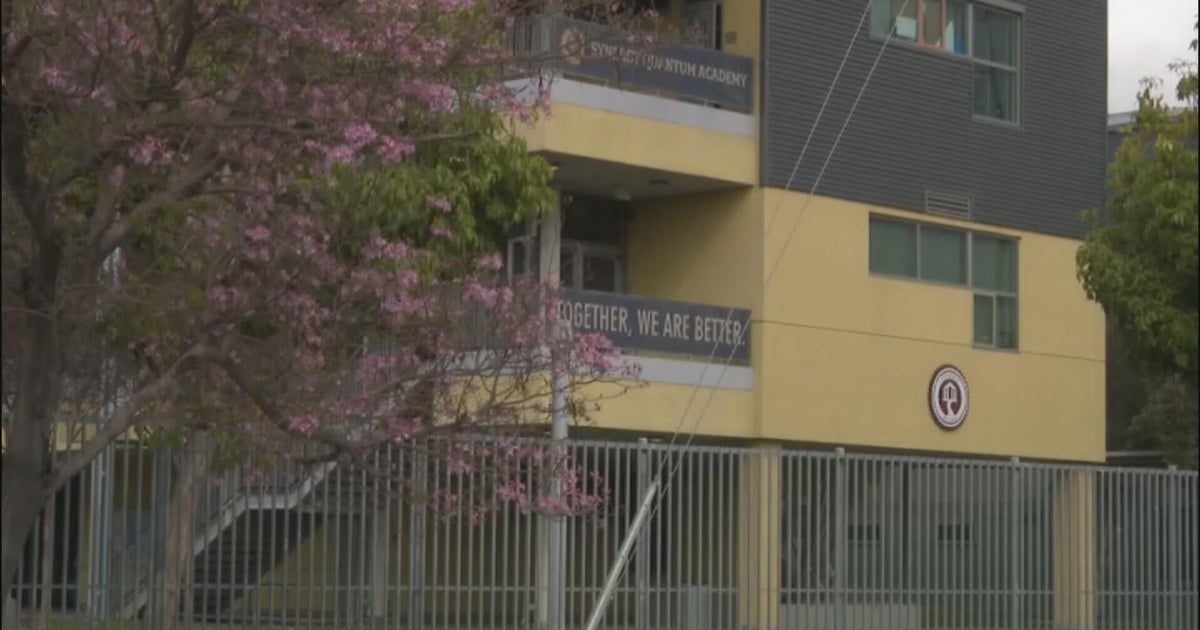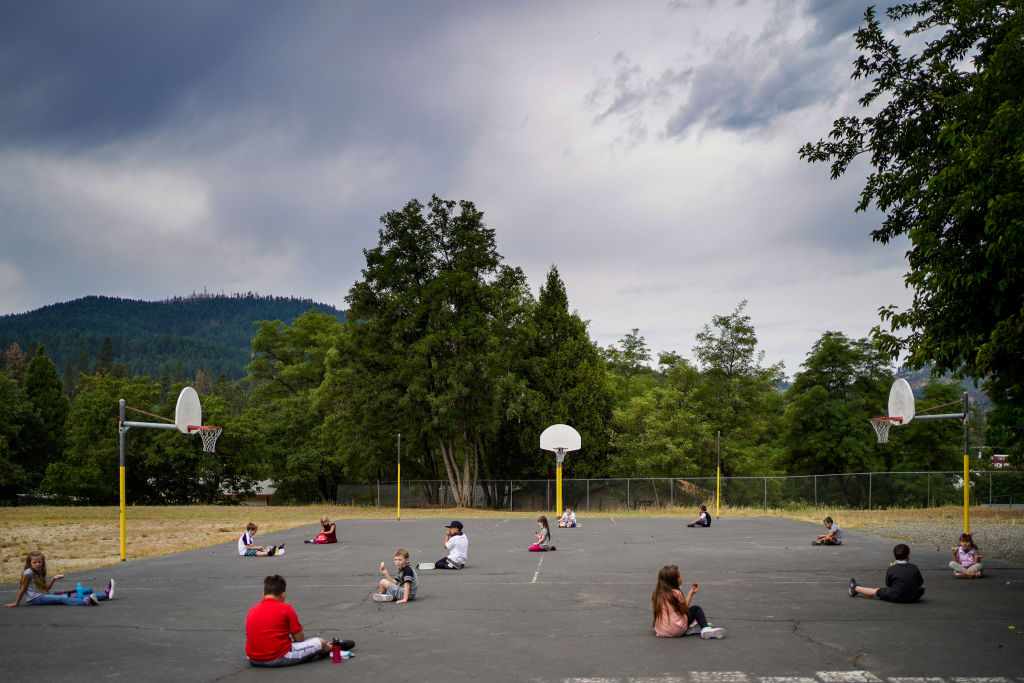Pandemic drives new and seasoned teachers from the profession
Back in March 2020, California teacher Courtney Dewis suddenly found herself conducting remote classes for kindergarten through eighth grade from the laundry room of her Los Angeles home.
"My husband was also working from home, I was teaching from our laundry room and asking my students if they could hear the spin cycle," Dewis, 33, told CBS MoneyWatch. She was also juggling two young children of her own, both of whom she had pulled out of day care.
She held on for about a year during the COVID-19 pandemic before ultimately deciding that the situation was untenable.
"It was absolutely not sustainable," Dewis said.
Dewis is hardly alone in her decision to pursue a different career after more than a year of teaching during the COVID-19 pandemic.
At the beginning of the 2020 school year, about one-quarter of all teachers said they intended to leave the teaching profession by the end of the year, according to a survey from the Rand Corporation.
That compares to a normal year's usual 8% rate of attrition, according to the U.S. Department of Education.
"Major shortages" next year
"There are some troubling signs, and if that does pan out, that would be three times the rate of normal attrition. It's scary," said Heather L. Schwartz, one of the authors of the Rand study. "That would spell out major shortages next year."
Teach for America is also anticipating a smaller corps this year compared to 2020. A spokesperson for the nonprofit attributed the projected drop in teachers to a delayed recruitment season and applicants' hesitation to make any commitments while COVID-19 has not yet been tamed.
"There is uncertainty around the trajectory of the pandemic and what the school year will look like next year, what teaching will look like. So I think the uncertainty is impacting every sector," the spokesperson told CBS MoneyWatch. "We are trending at potentially smaller figures.
The profession's notoriously low pay and high stress levels, exacerbated by the pandemic, have already driven both new and seasoned teachers from the field.
Roughly half of public school teachers who voluntarily stopped teaching after March 2020 and before their scheduled retirement, left because of the COVID-19 pandemic, according to a separate Rand Corporation survey.
These individuals' motivations for leaving teaching have been wide-ranging, from fear of jeopardizing their own health to frustration as schools across the country vacillated back and forth between remote and in-person models of learning.
"Some people said, 'I lack childcare,' others had health and safety concerns or didn't like the way their school handled safety protocols. Or it could be extra hours and they're fed up with remote learning," Schwartz said.
The tech challenges associated with remote teaching also led some teachers to give up. "A large share of teachers even a month into being remote had tech problems multiple days per week and students did, too," Schwartz added.
Back to school, but no longer in front of the classroom
Jonathan Song, 26, was already considering leaving teaching when the pandemic upended his work life in March 2020.
The Atlanta-based special education teacher struggled to connect with his fourth and fifth grade students virtually, and hold them accountable for completing their school work. In addition, many of his students had little experience using technology.
"It was frustrating because I felt like, overall, most of my students lost their education for the rest of that year or had a very watered-down experience," he said. "Giving my students any kind of learning experience was a challenge in and of itself."
Song said COVID-19 was the "nail in the coffin" that confirmed he didn't want to keep teaching, particularly under uncertain circumstances.
"It was like the cherry on top. Between Zoom and feeling like I didn't know how to reach out to my students and get them to do things, I said I don't want to do this for another year-plus," he said. "I didn't want to deal with not knowing how I was going to be educating students in the fall. I don't like going into teaching not being 100% ready and knowing the medium I was going to be using, or how much student contact I would be able to have."
He started law school in the fall, and doesn't regret leaving his teaching role.
"Teaching is already challenging but, out of nowhere, having to transition to this brand-new model was a tough experience," Song said.
"Not willing to die" for her job
For four-and-a-half decades, Amy Scott thrived in her dream job as a high school teacher in Miami.
Teaching is "who I am," said the 69-year-old Scott. "It gives me energy, ideas and creativity. But I am not willing to die for it."
She planned on teaching for one more school year before retiring. Then the pandemic hit.
Scott would have been expected to return to the classroom in person in the fall, but didn't feel comfortable with the circumstances.
"I saw that what was going to happen was they weren't going to be able to make the classrooms safe or do the social distancing or provide the facilities for handwashing, so I thought what I need to do is retire early because my life's not worth it," Scott explained.
That said, she doesn't envy the position her colleagues are in.
"They've been asked to work with Zoom and new technologies and at the same time teach in school and put themselves and their health in jeopardy," Scott said. "It's been very hard on all of them."






